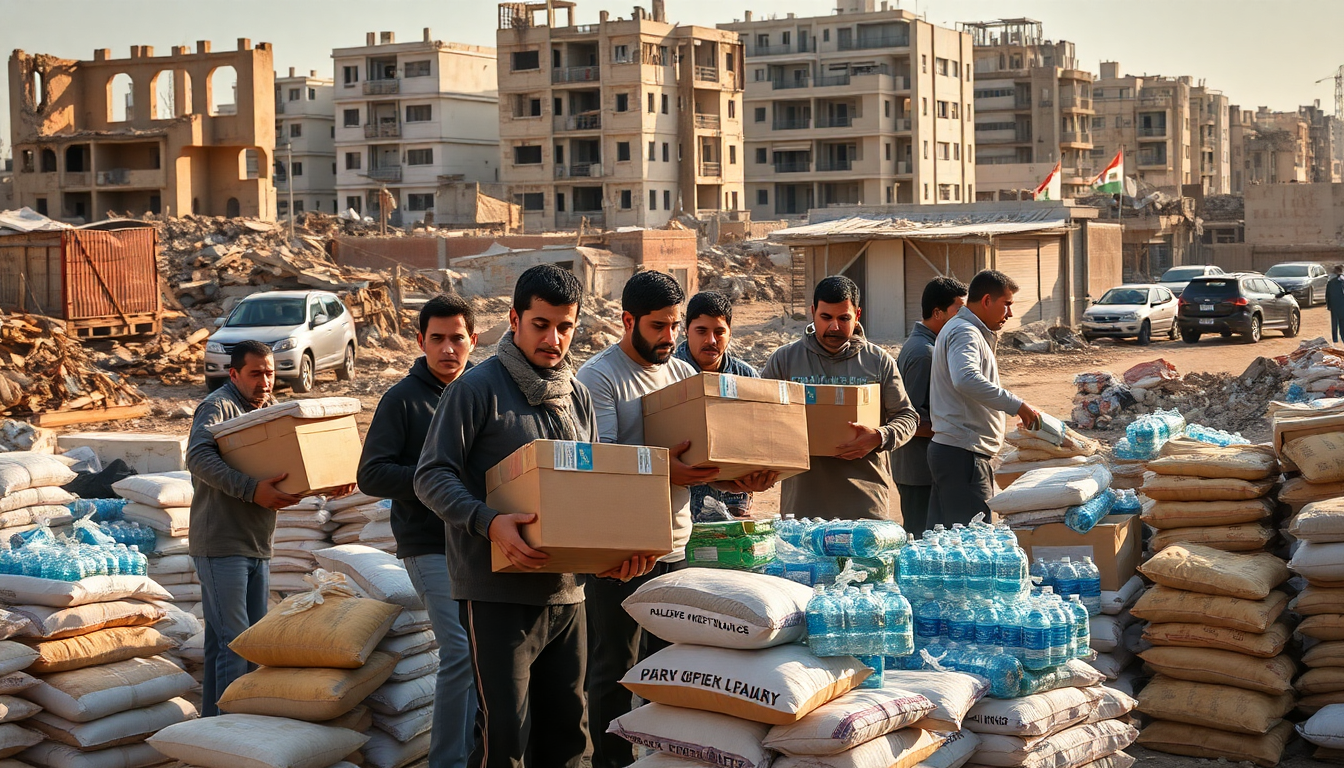Table of Contents
In a noteworthy turn of events, the Israeli military has declared a temporary halt to operations in specific areas of Gaza, including al-Mawasi, Deir el-Balah, and Gaza City, from 10 AM to 8 PM daily. This tactical pause is being presented as a response to the escalating humanitarian crisis gripping the region, a situation that has captured international attention and sparked criticism. But as the military emphasizes its focus on humanitarian aid, one can’t help but wonder: are these measures truly effective in addressing the urgent needs of the local population?
Overview of the Humanitarian Situation
This humanitarian pause comes against a backdrop of alarming reports indicating that around 2.2 million residents in Gaza are grappling with mass hunger. Humanitarian organizations have raised red flags about a severe shortage of food supplies, a situation worsened by previous restrictions on aid from Israel. Despite the Israeli government’s claims that starvation isn’t occurring, the reality is tragically different. Reports reveal that malnutrition has claimed the lives of many, including children. The Gaza Ministry of Health reports a staggering 127 fatalities due to malnutrition since the conflict began, underscoring the dire nature of the crisis.
Alongside the military’s pause, Israel has committed to creating secure routes for aid delivery, enabling humanitarian agencies to distribute crucial supplies like food and medicine. Yet, the real impact of these measures remains to be seen, especially considering the ongoing military operations and the intricate political landscape. There’s a palpable disconnect between the Israeli government’s narrative and the lived experiences of those in Gaza, who continue to bear the brunt of conflict and blockade.
Moreover, the military’s recent actions, such as airdrops of food staples, contrast sharply with the persistent violence, complicating the humanitarian situation even further. As this story unfolds, the international community is keeping a close eye, urging for accountability and a reevaluation of the strategies meant to protect civilians.
The Tactical Pause and Its Implications
The tactical pause called by the Israeli military raises essential questions about the intentions and consequences of such military decisions. While it’s framed as a measure to alleviate suffering, critics argue that this pause is merely a band-aid on a much larger humanitarian disaster facing Gaza’s residents. Reports of continued military actions in other areas during this pause cast doubt on the sincerity of the commitment to humanitarian relief.
Adding to the complexity, the Israeli military’s interception of a Gaza-bound aid ship—which resulted in the detention of international activists and the confiscation of vital supplies—highlights the hurdles that humanitarian efforts face. This incident brings to light the fraught dynamics of aid distribution in a conflict zone, where political and military agendas often hinder access for those in dire need. The Freedom Flotilla Coalition’s account of this violent interception further illustrates the delicate balance between military goals and humanitarian responsibilities.
As the military’s pause continues, it’s crucial to examine its implications for local communities. The ongoing dialogue surrounding the role of international organizations, like the United Nations, in facilitating aid reveals broader issues of accountability and collaboration. The Israeli military’s assertion that the UN has failed to distribute aid effectively sharply contrasts with the UN’s claims about access restrictions imposed by Israel, complicating the conversation around humanitarian assistance.
Future Considerations and International Response
The future of humanitarian efforts in Gaza hinges on a delicate mix of military strategy, political will, and international advocacy. As Israel navigates the complexities of its military actions alongside humanitarian concerns, the need for transparent communication and a genuine commitment to delivering aid is more pressing than ever. The global community’s response will be pivotal in shaping the future of humanitarian assistance and protecting civilian lives.
International criticism, especially from Israel’s allies, underscores the urgent need to reassess policies affecting Gaza’s population. As the humanitarian crisis deepens, the call for sustained and unrestricted access to aid emphasizes the importance of prioritizing human welfare over military objectives. The heartbreaking loss of life due to malnutrition and the ongoing suffering of civilians remind us of the immediate need for a comprehensive and compassionate response to the situation in Gaza.
As events continue to unfold, it’s essential for all stakeholders to engage in meaningful discussions that focus on a humanitarian approach prioritizing the needs of those affected. Moving forward requires collaboration among military authorities, humanitarian organizations, and the international community to ensure that help reaches those who need it most. Only through a united effort can we hope to alleviate suffering and restore dignity to the people of Gaza.


